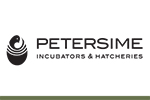 More than 140 participants from the feed industry, coming from 27 different countries, attended the Adisseo Expertise Tour, that took place in Belle Eglise, France, on October 1st and 2nd 2013.
More than 140 participants from the feed industry, coming from 27 different countries, attended the Adisseo Expertise Tour, that took place in Belle Eglise, France, on October 1st and 2nd 2013.
Two complementary sessions were held simultaneously, a “business session” and a “technical session”, both dedicated to the animal nutrition in the future.
The Business Session, dedicated to buyers, highlighted the new relationships that are necessary between purchasers and suppliers in the future if businesses are to be successful.
A new approach to purchasing was been given by Gordon Crichton, Director of MS in International Purchasing: “Purchasing is no longer a downstream support function...it has become highly strategic. We have to create value not only on prices, but also on innovation, and we have to take into account how suppliers can be a real force of proposition”. He focused on these changing relationships between a customer and its strategic suppliers. “The purchasing professional of tomorrow is completely different than the “buyer” of the past” he explained. “Benchmark, ‘best-in-class’ companies have built value relationships ...not with their suppliers...but with their 'strategic suppliers'.”
Practical examples of maximizing the economic benefits of feed additives were given by Pascal Thiery, Adisseo Technical Manager Europe. “These ingredients, even if they represent small quantities in the feed, enable big savings if they are accompanied by technical and nutritional expertise”. Adisseo has developed services to maximize the benefits of their products: ‘Precise Nutrition Evaluation’ (NIR Service of Adisseo) for enzymes (Rovabio®) and ‘Serenity Dimension’ for liquid methionine application (Rhodimet® AT 88). He also introduced ‘AdiSodium’, a source of sodium without chloride produced by Adisseo for use in animal feeds.
He calculated that, for a feed mill producing 10 000 T of poultry feed per month, the savings that could be achieved by using these services and products could reach 1,3 million euros/year.
Another topic of the business sector was the development of the global animal nutrition industry given by N.D. Mulder, Director Commodities, Farming and Animal Protein, Rabobank.
He explained that the demand for animal protein in the world is set to grow by 45 % from 2010 to 2030 (vs 2010) and this growth will be particularly high for poultry meat (+ 60 %), eggs (+ 48 %) and pork (+ 42 %) and that 70% of the global demand will come from Asia. Africa is the other region with a huge potential and is seen as the last frontier in global animal production. Africa, with a population which will double in 2050, and income growth and urbanisation leading to more protein consumption and more opposition to cheap imports, “some regions have a great potential for production growth”. For example, the demand for protein is increasing in particular in Nigeria, Zambia, Tanzania, North, Western and Central Africa. However, political factors, lack of infrastructure and poor business climates are obstacles that need to be taken into account. He concluded: “Income growth with entrance of international investors, distribution and production, could help industry to take off in selected countries.”
South Africa, the traditional market is still growing. Nigeria has a good potential for growing inputs such as corn and soya.
The Technical Session gave an insight into feed enzymes, from a non-conventional point of view. The goal of this meeting was to explore how recent research advances may open new concepts and practices and offer opportunities for the nutritionist.
Estelle Bonnin, Researcher at INRA Nantes (France) demonstrated how arabino xylo oligo saccharides, through their prebiotic activity, can provide health benefits, especially on the microbial composition of caecal content of chickens.
Aurélie Preynat, Adisseo Research Manager in Enzymes, then detailed how non starch polysaccharides (NSP) of soyabean meals impair nutrient digestion and absorption. Ileal digestibility of soybean meal NSP is low (11 to 27 %), and variable, depending on the process. Furthermore, soybean meals have antinutritional effects: increasing digesta viscosity, encapsulating nutrients, altering intestinal morphology, and buffering capacity of fiber. She demonstrated in vitro trials that showed that NSP enzymes can breakdown soybean cell walls.
These data are confirmed by in vivo trials, proving that Rovabio® improves Ileal Metabolizable Energy and performances of broilers receiving diets with 20 to 40 % SBM. “Xylanase cannot explain the full effect of this enzymatic cocktail” she said. She explained that pectinase greatly improves the efficacy of xylanase and concluded that, in cereal-SBM diets, Rovabio® leads to up to 50 % of the AME uplift.
A focus was then given to amino acid nutrition by Yves Mercier, Adisseo Research Manager in Amino Acids who explained why amino acids must not be only considered as building blocks of the muscle, but how they also have specific metabolic functions. He detailed how sulphur amino acids, and especially methionine, are involved in many regulation pathways, depending on the source. A deficiency, imbalance or surplus of amino acids don’t only affect animal performance, but also breast meat to leg ratio and meat shelf life. “In the future, formulators in poultry or swine integrations may give functional values to industrial amino acids in their feed matrix” he announced.
He explained why the methionine analogue, DL-HMTBA, leads to specific and better availability, sustaining anti oxidant balance under stressful conditions, and can give improved meat stability of meat during storage.
Jerôme Lamoine, Adisseo Product Application Technology Manager, then detailed the key factors for a proper application of liquid feed additives in the feed mill, especially the addition of Adisseo’s liquid methionine, Rhodimet AT 88®. He outlined a survey and trials done through 44 animal feed production sites throughout Europe and Africa. “This survey proves that the liquid form of methionine can perform equally as well as powder, in terms of homogeneity and recovery in the feed”.
Cécile Gady, Research Manager for NIR services at Adisseo, gave the final presentation of the technical session with a forward look on NIR, “which can bring more value and applications in the future, with new fields and new ways of instrumentation, mobility and technology”.
These presentations prove that progresses in nutrition can be expected through modelling with NIR analytics, with specific feed ingredient incorporation systems and new formulation software. She emphasized on the importance of more collaborative research between feed companies and universities to connect these new technologies, “which will be the key to success, and will accelerate time to market”.
Véronique Legrand-Defretin, Nutrition R&D Director Adisseo, closed the technical session : “Solution blocks exist, and being able to connect these new technologies will be the key to success”.
Frank Chmitelin, Adisseo Vice President Worldwide Sales concluded the whole event by explaining that “We wanted to give to our customers the vision of Adisseo for the next fifteen years, with ideas for co-developments of products and services that we could provide to the feed industry, developing successful partnerships”. He emphasised that Adisseo intended to be more and more a “strategic supplier” to their customer partners.
About the Adisseo Group:
The Adisseo Group is one of the world’s largest manufacturer of nutritional solutions for animals. It designs, manufactures and markets four families of animal feed additives: Rhodimet®, an essential amino acid for monogastric animals (poultry, etc.); MetaSmart® and Smartamine®, a unique methionine range for ruminants; Rovabio®, a multi-enzyme speciality which improves the digestibility of raw materials and Microvit®, a complete range of vitamins.
Adisseo strengthened its expertise in the field of food ingredients formulation, research and development and industrialization since the acquisition of Innov'ia, an European leader in the design and contract processing of powered and granulated ingredients for the food, cosmetics, pharmaceuticals and fine chemicals industries.
Worldwide, Adisseo Group employs 1,700 people, has 4 research and development divisions and 7 production facilities in France, Spain and in China. Adisseo serves, through its global distribution network more than 2,500 clients in more than a hundred countries. In 2012, the group's turnover exceeded €1.1 billion ($1.4 billion USD).
Adisseo Group is one of the main subsidiaries of China National BlueStar, a key player in the chemical industry in China with 30,478 staff and a turnover of 6.9 billion euros.

















